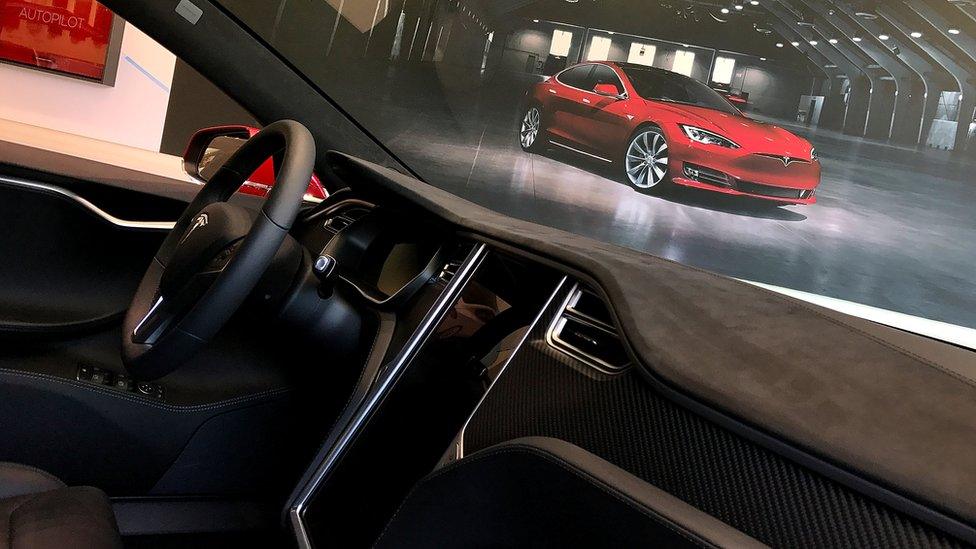Tesla Autopilot 'partly to blame' for crash
- Published

The US National Transportation Safety Board says Tesla was partly responsible for the Model S crash
The US National Transportation Safety Board (NTSB) has found that Tesla's Autopilot system was partly to blame for a fatal accident in which a Model S collided with a lorry.
Federal investigators say Tesla "lacked understanding" of the semi-autonomous Autopilot's limitations.
The NTSB recommended that car manufacturers and regulators take steps to ensure such systems are not misused.
It said the collision should never have happened.
The crash, in May 2016, led to the death of Tesla driver Joshua Brown, 40. The driver of the truck, which was pulling a trailer, was unhurt.
"In this crash, Tesla's system worked as designed, but it was designed to perform limited tasks in a limited range of environments," Christopher Hart, a member of the NTSB said in a meeting to discuss the findings of its investigation.
"Tesla allowed the driver to use the system outside of the environment for which it was designed, and the system gave far more leeway to the driver to divert his attention to something other than driving."
Semi-autonomous driving
In June, the NTSB released a 500-page report stating that in 37 minutes of driving, Mr Brown had his hands on the wheel for just 25 seconds.
At the time, the lorry driver told the Associated Press that Mr Brown had been watching a Harry Potter film when the collision occurred.
However, the NTSB said today that there was no evidence that Mr Brown was watching a film while he was driving.
The safety board added that the lorry driver refused to be interviewed for its investigation.
Primary factors
The NTSB found that both Mr Brown and the lorry driver had sufficient sight distance to afford time for either party to have acted to prevent the collision.
The investigation found that Mr Brown's inattention and the lorry driver's unwillingness to give way were both primary factors of the crash.
The investigators could not find a reason why Mr Brown was inattentive.
However, they confirmed that neither driver was fatigued or impaired by alcohol and drugs, and neither driver was distracted by a mobile device.
Following the meeting, the NTSB's report included seven safety recommendations requiring car manufacturers to add safeguards to prevent automated vehicle control systems from being used outside the conditions for which they were designed.
"At Tesla, the safety of our customers comes first, and one thing is very clear: Autopilot significantly increases safety, as NHTSA has found that it reduces accident rates by 40%," the car-maker said in a statement.
"We appreciate the NTSB's analysis of last year's tragic accident and we will evaluate their recommendations as we continue to evolve our technology.
"We will also continue to be extremely clear with current and potential customers that Autopilot is not a fully self-driving technology and drivers need to remain attentive at all times."
- Published20 June 2017
- Published29 July 2017